XLR8R’s Best of 2012: Overrated Releases
XLR8R has been around a long time, and although we do hold a certain level […]

XLR8R’s Best of 2012: Overrated Releases
XLR8R has been around a long time, and although we do hold a certain level […]

XLR8R has been around a long time, and although we do hold a certain level of influence, we’re ultimately just a single voice amongst an ocean of opinions. As such, no matter how strongly we feel about a particular piece of music, our take on something can easily be overwhelmed, especially once online groupthink begins to set in. The following list includes 10 releases whose praises were generally sung far and wide, and although we certainly don’t hate everything here (in fairness, we definitely hate some of it), we simply felt that these releases didn’t merit all of the acclaim that was thrown their way in 2012. Many of these records were wildly popular; some of these selections are from artists we really like, have supported in the past, and might very well support in the future. There are things here that have already (and will likely continue to) appear on other publications’ year-end lists. (Hell, there are records here from artists who have already appeared on some of ourBest of 2012 lists.) But this isn’t about playing favorites or following trends; it’s simply an effort to point out the releases that weren’t as good as advertised.
(The XLR8R audience has also been voting for its choices in this category as part of our Best of 2012 Readers Poll, which is still underway. The results will be unveiled next week.)
10. Supreme Cuts
Whispers in the Dark
(Dovecote)
Since debuting with 2011’s Trouble EP, Chicago duo Supreme Cuts has been championed as a promising pair navigating the waters between Mount Kimbie-esque post-dubstep and the murky quasi-genre of cloud rap. This July, the outfit jumped into the world of full-length records a bit too early by our estimation, releasing the lackluster Whispers in the Dark LP to mixed critical reviews, but still championed in certain circles as an innovative debut album. While the record was not without its worthwhile moments, the overwrought moodiness and imbalanced approach to reverb and delay (much of the record sounded as if it were being played back inside of a cave) made for a troubled 12-track run that distilled the slower end of bass music reference points into a far too soupy mixture. In the end, it seemed difficult to differentiate anything on Supreme Cuts’ Whispers in the Dark from the swelling number of bedroom producers all over the web fashioning similarly subdued, post-whatever beats. Glenn Jackson

9. Disclosure
“Latch”
(PMR)
Youthful UK duo Disclosure did a lot of good things this year, but the pair’s most recent single, “Latch,” wasn’t one of them. Built around a slick vocal turn from Sam Smith, the track seemed to confirm all of our worst fears about the path Disclosure could take as it continues to cross over into the mainstream. In fairness, there’s always been a sort of pop current in Disclosure’s music, but previous efforts balanced this out with clever—and undeniably hooky—nods to ’90s house and garage. “Latch” is something different, a tune that has almost nothing to do with the UK’s rich dancefloor lineage and everything to do with commercial success. It’s not a song for the club, at least not a respectable one. This is music for people who don’t like music, the kind of track teenage girls will rush to buy on iTunes after hearing it on the latest episode of The Vampire Diaries. Granted, if “Latch” had simply been offered up by the latest major-label pop outfit, we’d have no need to file a complaint. The problem here is that it’s a song from Disclosure, a group whose rapid ascent stems, at least in part, from the group’s association with underground electronic music. As such, it’s hard to not feel like “Latch” is something of a bait and switch, not to mention a potential red flag as the duo readies its already-hyped debut full-length. We still have high hopes for Disclosure—after all, the group nabbed the #2 slot on our list of 2012’s best new artists—but “Latch” is undoubtedly cause for concern. Shawn Reynaldo
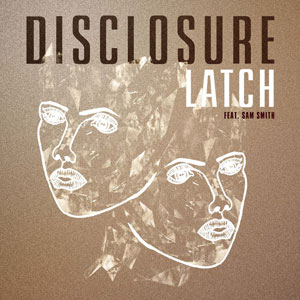
8. French Fries
“Yo Vogue”
(Dirtybird)
One of 2012’s least expected developments was the emergence of the voguing and ballroom subculture from its normally underground existence in the Masonic Halls and Elks Lodges of the Eastern American seaboard. Bass-oriented DJs from around the globe began to incorporate aspects of this aggressive form of dance music into their work, bringing wider attention to a sound that’s usually as secretive as the scene it springs from. Coupled with the new availability of Paris is Burning on Netflix’s instant watch, the seeds were sown for a sexuality-twisting situation in which it became fashionable for heterosexual clubgoers to be into the concept of “vogue.” Unfortunately, as the months have gone by, it’s hard not to think that much of the music’s original context has been lost, and songs like “Yo Vogue” are partially to blame. Though it was celebrated by the blog crowd as a party anthem, the track found Parisian producer French Fries opportunistically marrying lines like “I wanna see you vogue bitch” and “vogue, vogue, vogue, vogue” with what would otherwise be considered an uninspired Ableton project. Combining half-time breakdowns, tech-house basslines, and flourishes cribbed from Masters at Work’s “The Ha Dance,” the production was a sort of sonic grab bag that ultimately felt every bit as lifeless and insincere as the vocal it was built around. We’re not opposed to a resurgence in vogue music—there are undoubtedly some talented artists whose work is reinvigorating the genre—but in our opinion, French Fries was bandwagoning in a bad way. Derek Opperman
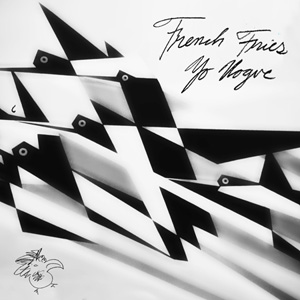
7. The xx
Coexist
(Young Turks)
XLR8R posted quite a few times about The xx over the course of 2012, mostly as the band was leading up to the release of its second album, Coexist. That said, keen-eyed readers may have also noticed that we didn’t publish a review of that record, even after all of the related news stories and bootleg remixes we offered for download. The reason? Well, calling Coexist a “highly anticipated” album is definitely an understatement (something like “fiendishly pined for” sounds more apt to us), and we’re certainly not above allowing ourselves a bit of hype-fueled attention from time to time. Besides, we legitimately enjoyed the band’s first record, but after spinning Coexist a handful of times, it became clear that The xx’s sleepy and stripped-down sound wasn’t all that enticing a second time around (it certainly didn’t help that Coexist was even sleepier and more barebones than its predecessor, too). So while some outlets decided to gently call out the UK trio’s sophomore slump, XLR8R just dodged that rigmarole altogether—until now, anyway. Patric Fallon

6. Baauer
“Harlem Shake”
(Jeffree’s)
Diplo’s Mad Decent label hasn’t exactly built its reputation by releasing music with a lot of subtlety, so it came with little surprise that the inescapably straightorward anthem “Harlem Shake” hit every mark on the trap- and hip-hop-minded bass-music checklist when it saw a release through the imprint’s Jeffree’s offshoot just before the start of summer. The subject of some palpable buzz after first making an appearance in Rustie’s Essential Mix, Baauer‘s no-frills banger employed the usual suspects—rolling snares, tuned 808s, the requisite build-ups and breakdowns, and a video game-indebted bassline that was impossible to unhear. Essentially, there was no song in 2012 more likely to stir crowds into showing their “bass face” whilst simultaneously “throwin’ bows,” but whatever visceral value the tune displayed upon first listen was quickly lost with repeated exposure—an unfortunate fact considering that “Harlem Shake” quickly became a go-to tool for jocks looking to bolster their own shortage of ideas with the most obvious sorts of big-beat bravado. Glenn Jackson
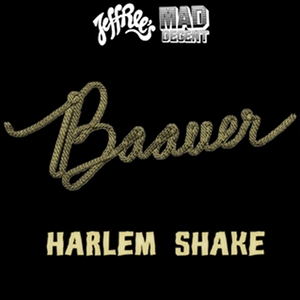
5. Jam City
Classical Curves
(Night Slugs)
Without question, Jam City takes his work very seriously. Looking back at his Chatterbox conversation with us just prior to the release of Classical Curves, it’s apparent that the London-based producer viewed his debut LP as a sort of high-concept art project. It was a bold move, especially coming from an artist whose previous output openly—and inventively—targeted the dancefloor, but Jam City clearly saw the the full-length format as an opportunity to do something bigger. The LP certainly sounded serious, so much so that listening to it wasn’t particularly fun. As such, it’s hard to think of another 2012 album that was praised by so many while being truly enjoyed by so few. Make no mistake, there were highlights to be found—”The Courts” and “How We Relate to the Body,” in particular—but in the end, Classical Curves felt like an artificial construct of what “important” music is supposed to sound like. It’s possible that we simply had trouble disassociating Classical Curves‘ unexpected dissonance from our own expectations, although the recently released Classical Club Mixes proved that we weren’t the only ones hoping for something a little more club oriented. That record definitely helped renew our enthusiasm for Jam City, but it doesn’t change the fact that Classical Curves came off sounding like an effort by the producer to partially shun his past. In the process, part of what made him a special artist was temporarily lost, and that was unfortunate. Shawn Reynaldo

4. Purity Ring
Shrines
(4AD)
In 2011, Canadian duo Purity Ring landed on a charming hybrid of electro-pop when they wrapped the urban ryhthms of underground electronic music with the chords and melodies of indie twee on “Ungirthed,” an introductory track topped off by the delicate tone and delivery of vocalist Megan James. Unfortunately though, that’s where the concept’s evolution seems to have stopped. Shrines, the pair’s debut full-length, failed to add much to what—over the course of 11 tracks—proved to be a rather two-dimensional approach to electronic pop, not to mention an inferior take on a sound better explored by the likes of The Knife, or even Purity Ring’s contemporaries such as Grimes and d’Eon. Ultimately, aside from a few changes in tempo and one particular song where a male vocal was enlisted to make an appearance, the LP presented the group’s same appropriated formula across the entire album, making only enough adjustments between tracks to denote that they were in fact different songs. Armed with a completely stagnant sound palette, Purity Ring penned a record virtually void of dynamics and fit to serve as a warning for all budding production outfits about the consequences of overdosing on side-chain compression. Glenn Jackson

3. Scuba
“The Hope”
(Hotflush)
“The Hope” is terrible. Sure, we could be more delicate about our phrasing, but there’s truly almost nothing redeemable about the track, which surfaced in early 2012 as the first single for Scuba‘s divisive Personality LP. Granted, “The Hope” was far from universally beloved, but one couldn’t help but notice the incredibly vocal nature of its supporters. Listening to the song again, it’s hard to ascertain exactly what these people found so enjoyable. Surely, it couldn’t be the time-stretched diva vocals or the overt references to the worst tendencies of late-’90s big beat—no one misses “Block Rockin’ Beats” that much. It couldn’t have been the absurd vocal—provided by Scuba himself—which made vague references to guys, girls, money, and “the sex.” And it definitely wasn’t the song’s atrocious music video, which confusedly combined clips of an elephant in a pool with embarrassing footage of some absolutely laughable interpretive dance. Maybe someone can explain “The Hope” to us, because we clearly don’t get it. That said, we’re pretty sure we don’t really want to. Shawn Reynaldo
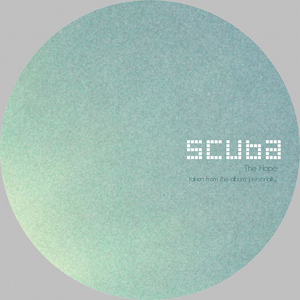
2. Flying Lotus
Until the Quiet Comes
(Warp)
What was interesting about our review of Flying Lotus‘ fourth LP, Until the Quiet Comes, wasn’t so much what we had to say about it, but more so how readers reacted to our assessment of the tepid release. One commenter stated, “[This is] one of the few truthful reviews of this album. [The] hype is just stupendous around him.” Another one rebutted with, “[The music is] well played, regardless of [the] hype.” Suffice it to say, while the opinion on Flying Lotus’ latest is entirely split, everyone can agree that the guy gets a ton of attention on the internet. We were obviously among the many outposts sharing every “short film” (read: music video), track stream, and other related announcements, but instead of critically championing producer Steven Ellison’s newest collection of subdued jazz motifs and rehashed beatscapes after its release, XLR8R provided a voice for those who expected a bit more from the wildly popular artist. We couldn’t sit idly by while the producer let guest vocalists and studio musicians take the spotlight on his tracks, nor could we feign contentment when he crammed a couple of requisite “face melters” into an otherwise mellowed-out album. When it came down to it, Until the Quiet Comes just didn’t flow like Flying Lotus’ previous work, and it certainly lacked the mysterious sound worlds that help make Los Angeles and Cosmogramma consistently enjoyable, even after all these years. It should be said that we still have faith in Ellison, but that doesn’t mean we’re willing to get entirely behind a record like Until the Quiet Comes just because its creator made such exciting music in the past. Patric Fallon
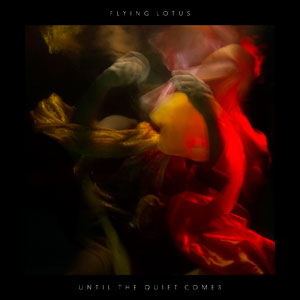
1. TNGHT
TNGHT
(Warp)
This year, the merits of “real trap shit” proved to be a point of growing contention, its detractors and supporters equally ready to chime in on Facebook, Twitter, YouTube comment threads, music forums, and the rest of the internet’s many virtual platforms for the uninhibited expression of opinion. The debut of TNGHT (a collaboration between Glasgow’s Hudson Mohawke and Montreal’s Lunice) was perhaps the most universally lauded record to arise from the underground’s overwhelming adoption of this particular style of beatmaking (which has arguably existed for more than a decade within the world of Southern-bred rap), one packed to the brim with tuned 808s, skittering drum machines, sharply cut samples, and a host of absurd FX (baby noises, water drops, breaking glass, guns being loaded, and the required chorus of “Hey”s among them). Ultimately though, the TNGHT EP made for a rather uneventful 15 minutes, as its bombastic rhythms, predictable arrangements, and gangstafied machismo only seemed to have two states of being: on and off.
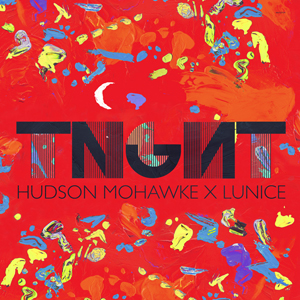
Still, what felt particularly lacking on the effort’s four cuts was the production wizardry of Mohawke, who over the years has proven himself an expert at crafting hyperactive adventures between instrumental beats and hybridized bass music. For the TNGHT project, however, both Lunice and Mohawke have said in no uncertain terms that the EP’s five beats were crafted with rappers in mind, and even intended as a way to help the pair break into the world of commercial hip-hop. Quite literally, in order to make room for the vocals of an eventual MC, the songs were stripped somewhat bare, and while this unembellished approach may have been necessary to accomplish the duo’s stated goal, it ultimately left us with one nagging question: Do we really care about TNGHT’s five commercial rap instrumentals? Glenn Jackson
XLR8R‘s Best of 2012 coverage will continue all of next week, so check back each day for additional year-end round-ups. In the meantime, don’t forget to vote in our Readers Poll, and take a look at the other Best of 2012 pieces we’ve posted already:
XLR8R‘s Best of 2012: Top Downloads
XLR8R‘s Best of 2012: Podcasts
XLR8R‘s Best of 2012: Features
XLR8R‘s Best of 2012: Videos
XLR8R‘s Best of 2012: Labels
XLR8R‘s Best of 2012: Hi, Doctor Nick!
XLR8R‘s Best of 2012: New Artists

